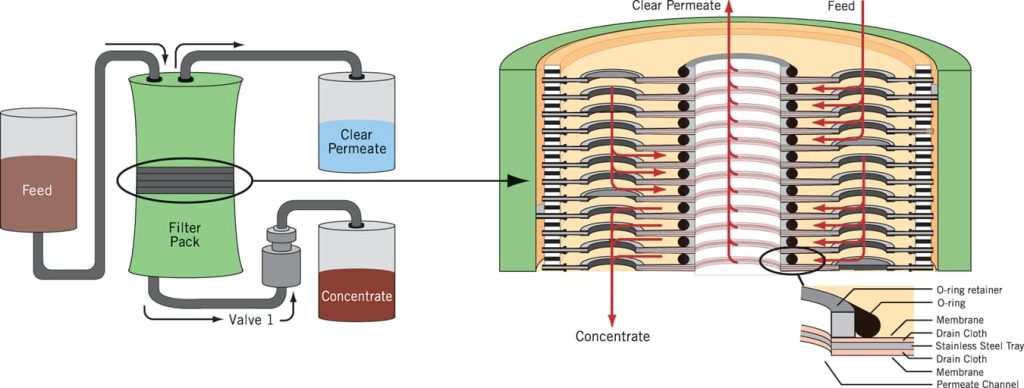How WWA uses Vibratory Shear Enhanced Process (V-SEP) for oil separation in the food and beverage industry.
Introduction
Oil separation is a critical process in the food and beverage industry, ensuring the quality, taste, and safety of various products. Whether it’s extracting vegetable oils, clarifying fruit juices, or refining edible fats, efficient oil separation is essential. V-SEP, with its innovative membrane filtration technology, offers a sustainable solution for achieving clean oil separation while minimizing waste and environmental impact.
Challenges in Oil Separation
- Wastewater Management: Food and beverage processing generates significant amounts of wastewater containing oil residues. Proper treatment is essential to prevent environmental pollution and comply with regulations.
- Product Quality: High-quality oils and fats are crucial for food products. Efficient separation ensures that the final product meets taste, texture, and nutritional standards.
- Resource Efficiency: Minimizing water and raw material consumption is essential for sustainable production. V-SEP allows for water reuse and reduces the need for chemical treatments.
How V-SEP Works
V-SEP employs vibrating membrane filtration, preventing fouling and enhancing separation efficiency. Here’s how it works:
- Feed Stream: The wastewater containing oil and solids enters the V-SEP system.
- Vibratory Shear: Intense oscillatory vibration at the membrane surface prevents fouling by sweeping away particles.
- Permeate Stream: Clean water passes through the membrane, ready for reuse or safe discharge.
- Concentrate Stream: Solids and oil are concentrated for further processing or disposal.

How WWA Applies V-sep to benefit the Food and Beverage Industry
- Edible Oil Refining: V-SEP can clarify crude vegetable oils, removing impurities, gums, and fatty acids. The resulting oil is suitable for cooking, frying, and salad dressings.
- Fruit Juice Clarification: V-SEP efficiently separates juice from pulp, ensuring clear, flavourful juices without sediment.
- Dairy Industry: V-SEP treats whey, a byproduct of cheese and yogurt production. It concentrates solids for reuse and produces clean water.
- Brewing and Distilling: Separating spent grains, yeast, and other solids from beer and spirits production.

Watch Us work. here..
Book a Pilot Testing for your company


Recent Comments